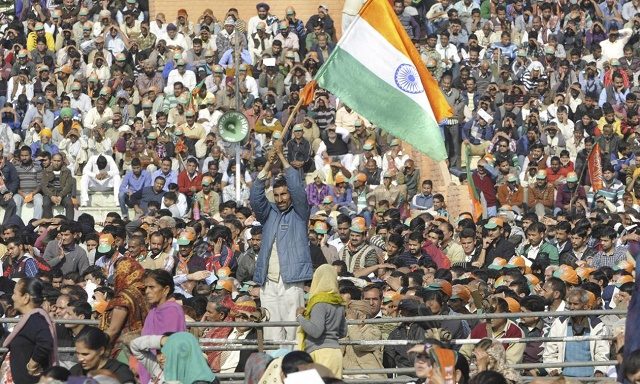“A vibrant democracy demands dissent,” is a position we all accept when it comes to ascertaining the qualities that makes a strong democracy. Of course, there are some people who erroneously believe that this dissent needs to come from the political party in opposition. That, of course, is not true!

A democracy needs dissent…and this dissent has to come from all corners of the country…be it the media, civil society, political parties, intellectuals. Of course, for a thriving democracy, the dissent needs to louder from non-governmental quarters. Of course, this advice comes with some caution:
‘Dissent for the sake of dissent does not make a democracy strong’.
In other words, it takes informed dissent and constructive criticism to strengthen a democracy. This is because, when dissent and criticism is based on informed opinion and is backed by logical reasoning, all three arms of a democracy, — i.e. the legislature, the executive, and the judiciary — stops to pay heed to what is being said.
For example, had it not been for the civil society, the legislature would not have pushed for the Jan Lokpal Bill. Similarly, had our NGOs and media houses not created pressures through their informed campaigns against the Parliamentarians (and their respective criminal credentials), we may never have had the mandatory ‘declaration of assets’ for MPs.
In fact, if we were to trace the history of RTI (i.e. the Right to Information) Act, we will once again find the genesis of the act in the acts of the informed citizens. Thus, let us go back in time and look at one concrete example as how a single informed and dissenting citizen can change the course of a democracy. The man was L. K. Koolwal and the year was 1986 [ref: L. K. Koolwal vs State of Rajasthan and Ors. — AIR 1988 Raj 2, 1987 (1) WLN 134].
The reason the Right to Information (and the man who played a key role behind it) needs a special mentioning is because of its relevance when it goes up against the Official Secrets Act (OSA) of 1923. In fact, so strong is RTI that it clearly spells out that in the event of a clash between RTI and OSA, public interest will prevail. Thus, what it essentially means is that if some information needs to be declassified in public interest, it would be done so…even if it was under the purview of Official Secrets Act. Thus, the public becomes more powerful…thanks to the Right to Information Act…which is what any democracy stands for: ‘A government…of the people, by the people, for the people’. For it is the people who need to be strong and possess strong opinions and voices (of course, provided their voices speak in the interest of the nation).
In other words, informed citizenry and non-governmental agencies have proved to be transformation agents for the democracy, helping the cause of democracy. In fact, if you come to think about it…a democracy minus dissent is simply an autocracy! And that is something we…the people…of this great big democracy vow against! Thus, let our collective voices of dissent rise constructively in order to bring peace and prosperity to our motherland.




























